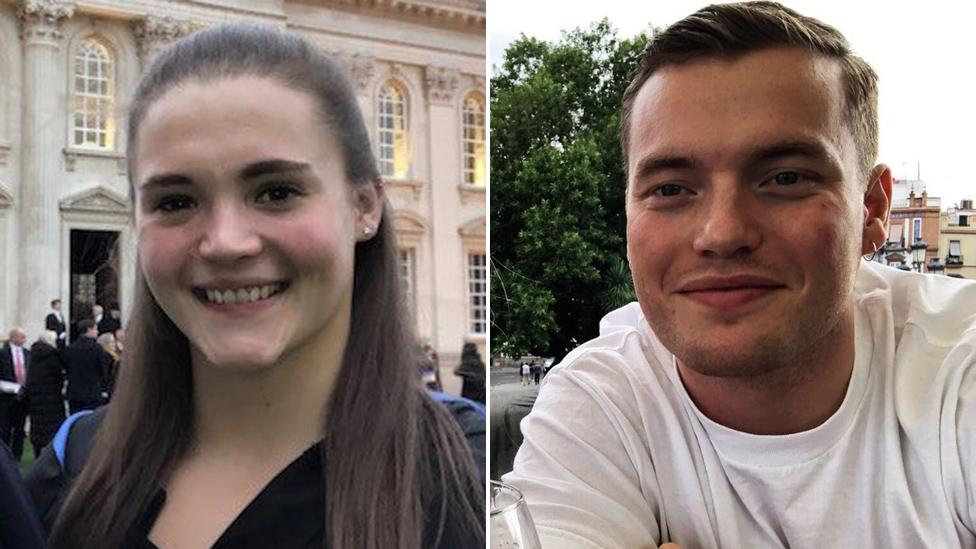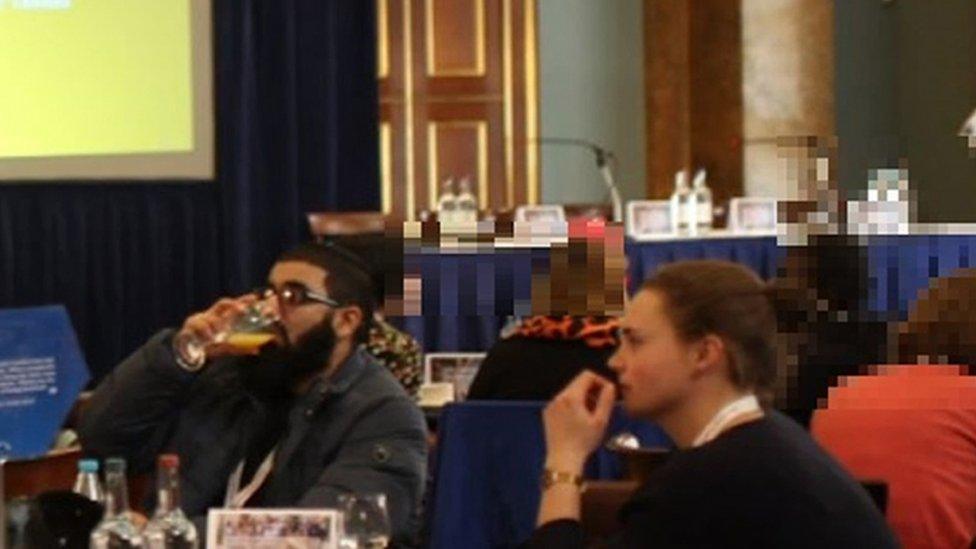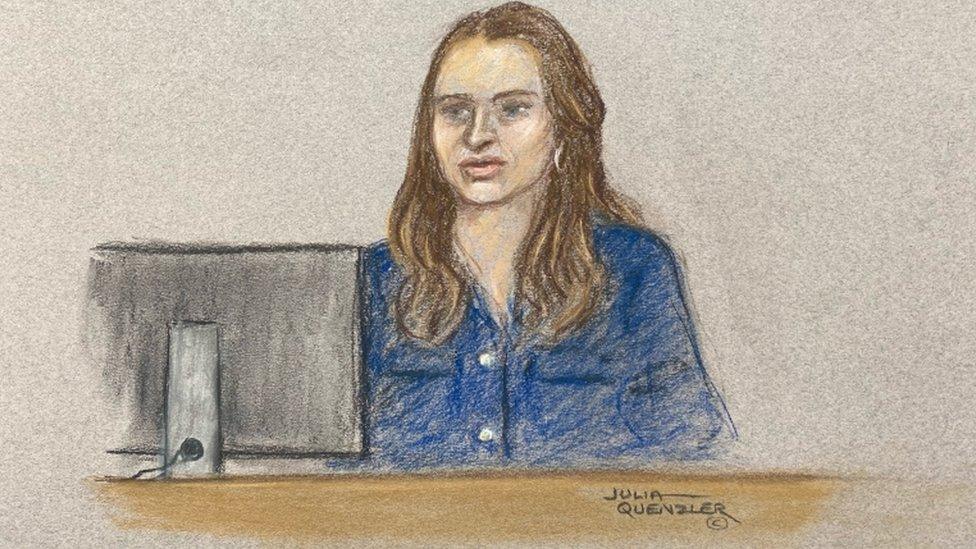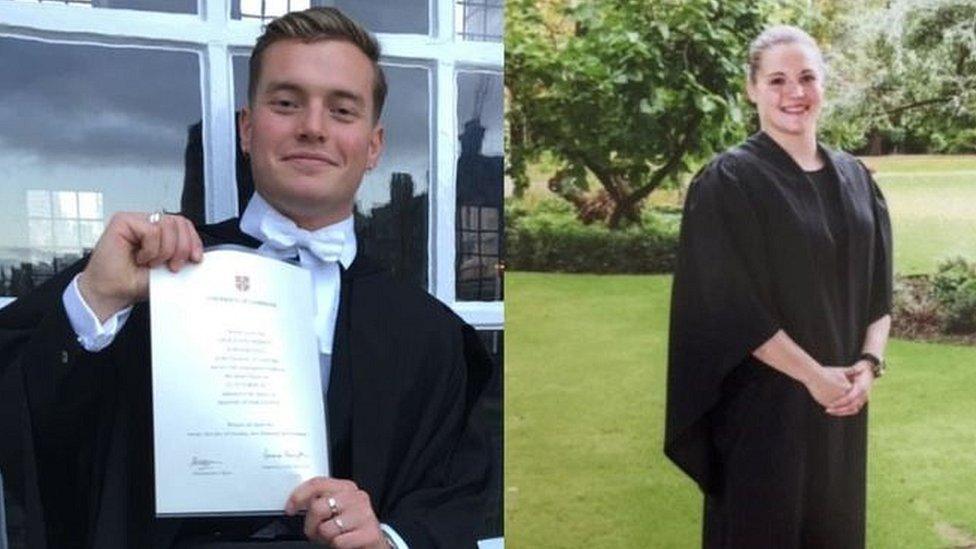Fishmongers' Hall inquest: Terror attack scene was 'messy and chaotic'
- Published

Saskia Jones and Jack Merritt were killed during a conference on rehabilitating offenders
A victim of the Fishmongers' Hall terror attack had to be taken away from the building for treatment due to safety concerns, a medic has said.
Paramedic Carlton Cullinan told an inquest the scene, on 29 November 2019, was "generally messy and chaotic".
Responders did not know whether the terror attack was still continuing when they entered the hall, he added.
It was decided Jack Merritt should be carried to an emergency doctor further up the road near Monument Tube station.
The inquest, at London's Guildhall, is examining the deaths of Mr Merritt, 25, and Saskia Jones, 23, who were stabbed to death by convicted terrorist Usman Khan.
It will also examine the response to the attack, which happened at a charity event in Fishmongers' Hall.

Usman Khan sat at the same table as Saskia Jones
Mr Cullinan told the inquest he was having lunch with a colleague who received a radio call informing him that he had been sent a message about a developing incident.
On the day after the attack, he logged that his response had been delayed following a "delay of the call coming through to his handset radio".
London Ambulance Service received calls about the stabbings at 14:02 GMT and dispatched paramedics at 14:06.

Mr Cullinan said he was specially trained to work in "warm zones".
These are put in place by emergency services when there is a risk of terrorist attackers continuing to threaten public safety.
Mr Cullinan told the inquest that he arrived at London Bridge at 14:10, wearing a helmet and armour.
A minute later, there was gunfire as police shot Khan, he said.
He was escorted into the hall by an armed officer and saw Mr Merritt lying on his side suffering from several stab wounds.
Mr Cullinan saw other injured victims, including Ms Jones. She had a neck wound and was being treated on the building's main staircase.
A decision was made to get Mr Merritt out using a Sked stretcher, which is designed to drag patients to safety.
By taking Mr Merritt to the helicopter emergency medical service (HEMS) team at Monument, he would be able to be operated on and receive blood transfusions, the paramedic explained.
One of the HEMS responders, Dr Andrew Milne, told the inquest this was the first time he had ever entered a warm zone.
Dr Milne said HEMS, which also operates response cars, did not have "specific guidance" about such situations.
The inquest continues.
- Published14 April 2021

- Published13 April 2021

- Published12 April 2021
